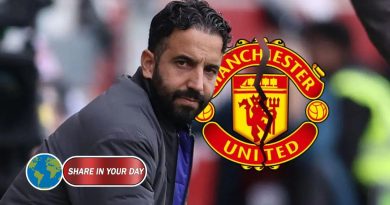Wealth Takes Time, Not Flash: Morgan Housel on Why Getting Rich Slowly Is the Real Art of Money
In a world addicted to quick wins, bestselling author Morgan Housel wants to remind people that real wealth is not built overnight. It’s not about striking gold on crypto or nailing the next hot stock. Instead, it’s about decades of discipline, contentment, and deeply personal choices that reflect what truly matters to us — not to strangers on the internet.
The author of the 2020 breakout hit “The Psychology of Money” is back with a new release, “The Art of Spending Money,” where he turns his attention from building wealth to understanding how we spend it — and more importantly, why.

“Wealth is always a two-part equation — it’s what you have minus what you want,” Housel told CNBC in a recent interview ahead of the book’s October 7 launch.
🎯 Beyond Dollars: The Psychology Behind Spending
In his new book, Housel argues that how we spend money is just as important as how we earn it. Spending, he says, is “an art because it’s subjective.” There are no universal answers — what makes one person feel rich may leave another feeling empty.
One of the central themes of the book is the contrast between external benchmarks — spending to impress others — and internal benchmarks, where money enhances your genuine happiness and lifestyle.
Take the example of buying a bigger house. “It might make you happier,” Housel says, “but only if it improves your life by bringing friends and family closer. The house itself isn’t the source of joy — your relationships are.”
The problem? We often chase status, not utility. We want the car, the clothes, the Instagrammable lifestyle — not because they bring us joy, but because we hope they’ll earn us admiration.
“We overestimate how much strangers are paying attention to us,” he says. “And if they are, they’re not admiring you — they’re imagining themselves in your shoes.”
🧠 The Trap of FOMO and Fast Wealth
A recurring villain in modern personal finance? FOMO — the Fear of Missing Out.
We scroll through social media and see people who appear to be getting rich faster than we are. Housel cautions against this mindset.
“What matters isn’t how quickly you get rich — it’s how long you can keep compounding,” he says.
Sustainable wealth is not about massive wins; it’s about average returns sustained over long periods. The people who seem to be “winning” financially may be sacrificing unseen parts of their life — health, peace, relationships.
This echoes one of Housel’s favorite quotes from comedian Jimmy Carr:
“Everyone is jealous of what you’ve got. No one is jealous of how you got it.”
⚖️ Finding the Balance Between Today and Tomorrow
For many, financial decision-making boils down to a daily tug-of-war: enjoy life now or save for later?
Housel believes the answer lies not in rigid rules, but in understanding your future regret. Will you look back one day and wish you had taken that trip? Or will you regret not saving more for your kids’ education?
He credits late psychologist Daniel Kahneman for this insight: good investors — and good spenders — need a calibrated sense of future regret.
“Volatility only matters if you regret it. If you don’t even remember a market drop from 10 years ago, was it really a risk?”
💡 When Is “Enough” Really Enough?
Perhaps the most thought-provoking part of Housel’s philosophy is his interpretation of “enough.” In a culture that constantly tells us to want more, he argues that the endless pursuit of “just a little more” often leads to less happiness, not more.
He illustrates this with the classic parable of the Mexican fisherman, who lives a simple, fulfilled life, only to be advised by a businessman to expand, hustle, invest — all so he can someday live the same quiet life he already has.
“Wealth is what you have, minus what you want,” Housel repeats. “And we spend so much time trying to increase what we have, while barely thinking about how to want less.”
Still, Housel isn’t advocating for minimalism or anti-capitalism. He recognizes the societal value of ambition — progress relies on people striving for more. But at an individual level, contentment may be the most underrated form of wealth.
🏁 The Real Goal: Independence
Ultimately, Housel says, the most valuable thing money can buy isn’t a car, or a vacation, or even a bigger retirement account.
“It’s independence — the ability to live life on your own terms, free from the need to impress anyone else.”
It’s about making decisions not based on what society expects, but what makes you feel fulfilled. And when we stop assuming people are watching — when we realize they’re too busy thinking about themselves — the desire to chase status fades.
In the end, the art of spending money may just be the art of living deliberately.



